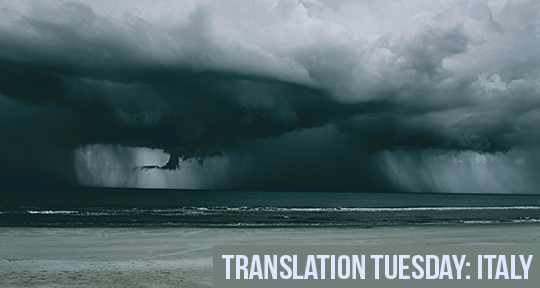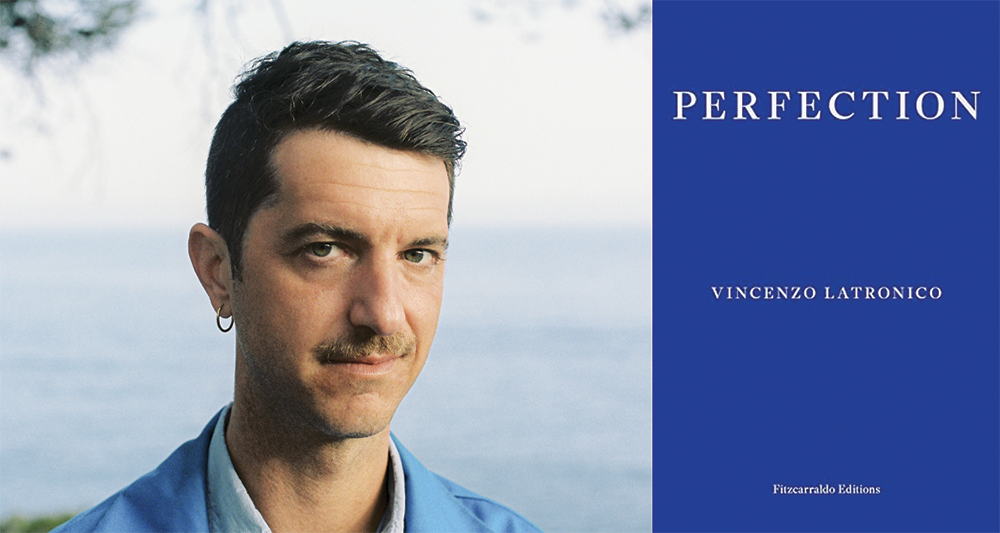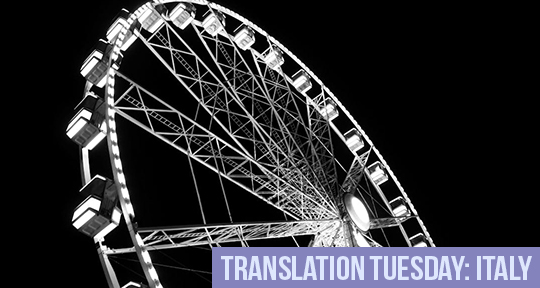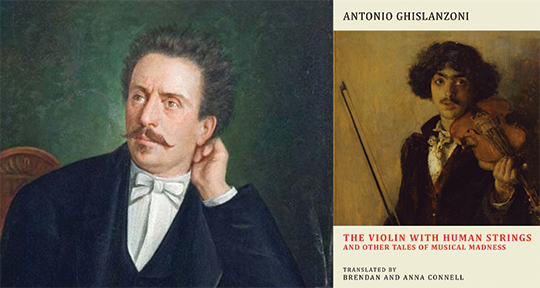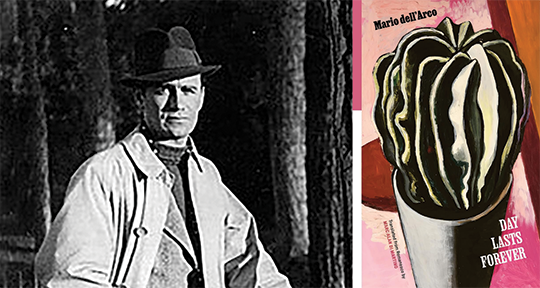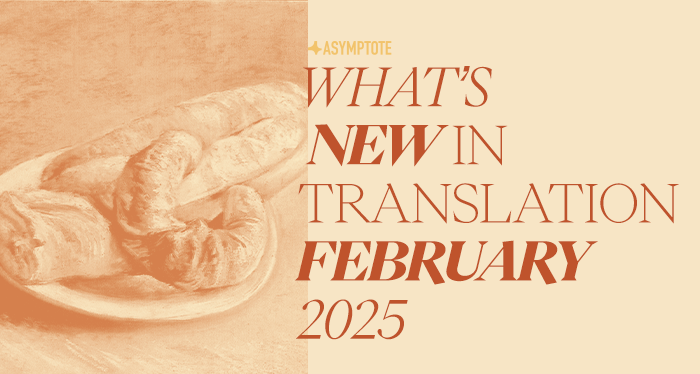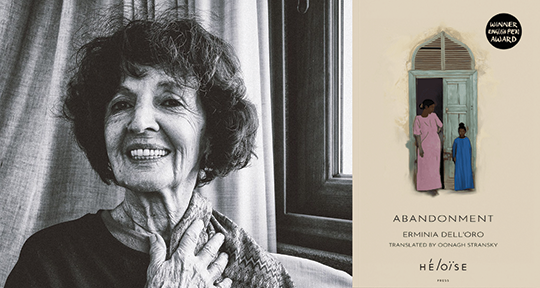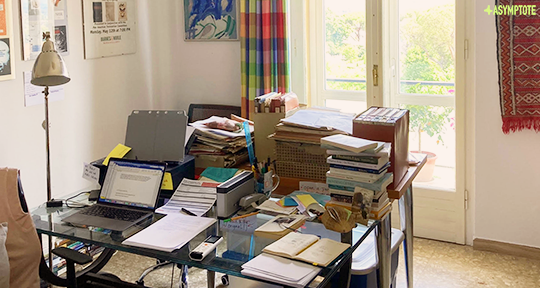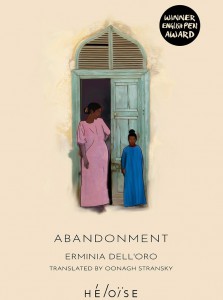In Butterfly of Dinard, the great poet Eugenio Montale leads the reader up to numinous looking points along the towers of everyday experience, pointing us towards an innate sublimity and magic—how individual vision and experience can strike pedestrian sceneries with an extraordinary intensity of meaning. Originally published as columns in the Corriere della Sera, fifty of these stories have been translated with extraordinary care and finesse by Marla Moffa and Oonagh Stransky, and in this interview, they speak to us about the affinity between Montale’s prose and poetry, the revelations of translation, and how such stories travel from the page into personal realities, deepening and celebrating the spaces, people, and objects that—if looked at closely—“reveal a great truth.”
The Asymptote Book Club aspires to bring the best in translated fiction every month to readers around the world. You can sign up to receive next month’s selection on our website for as little as USD20 per book; once you’re a member, join our Facebook group for exclusive book club discussions and receive invitations to our members-only Zoom interviews with the author or the translator of each title.
Xiao Yue Shan (XYS): I wanted to start with asking you both about the crossings between Montale’s poems and his prose works. What do both of you consider Butterfly of Dinard to be saying to us on its own? Is there an independent author to be found, or should we read his prose as dialogic with his poetry?
Marla Moffa (MM): I would say that there are various symbols in the poems that we can also find in the stories. Considering that he wrote Butterfly of Dinard when he was in his fifties—after the two main volumes of poetry, Cuttlefish Bones and The Occasions, and concurrently with The Storm and Other Things—it’s as if he’s regrouping in these stories everything that we find in the poems as well.
For example, as Jonathan Galassi points out in the introduction, Montale speaks about the eels in the story “The Best Is Yet to Come,” and just at the mention of the word eel on the menu for the protagonist, the narrator has this flashback, because the eels represented something special in his youth. There’s also the poem “L’anguilla / The Eel” in Montale’s poetry, which is one of his most important poems. It’s interesting to be able to read the two pieces in parallel, but at the same time, I feel like the stories are independent. If you don’t know his poetry, and you just read Butterfly of Dinard, you can still enter into Montale’s world. He even says himself that if one wants to know his story, that this is the book to read, because it is quite autobiographical.
Oonagh Stransky (OS): I agree with what Marla said, and the only thing I would add is that one of the things that appeals to me most about these stories is really the element of humour—the self-deprecating humour and irony. As in his poetry, there are moments of existential crisis, of gaps and sudden shocks, but there is also a delight in life, and a delightfulness that he attributes to so many different things. The nostalgia towards his past is one aspect of it, but I also like how he talks about himself—how he describes this figure, who may represent himself, as bumbling and Chaplin-esque, as Galassi calls it. It opens up new windows onto Montale the man, and who this very mysterious and obscure Nobel-winning poet was. Here we see him as a man in slippers, with a turban on his head, holding a rug up to scare away a bat—all those things are elements that allow the reader to feel more familiar with him. READ MORE…

